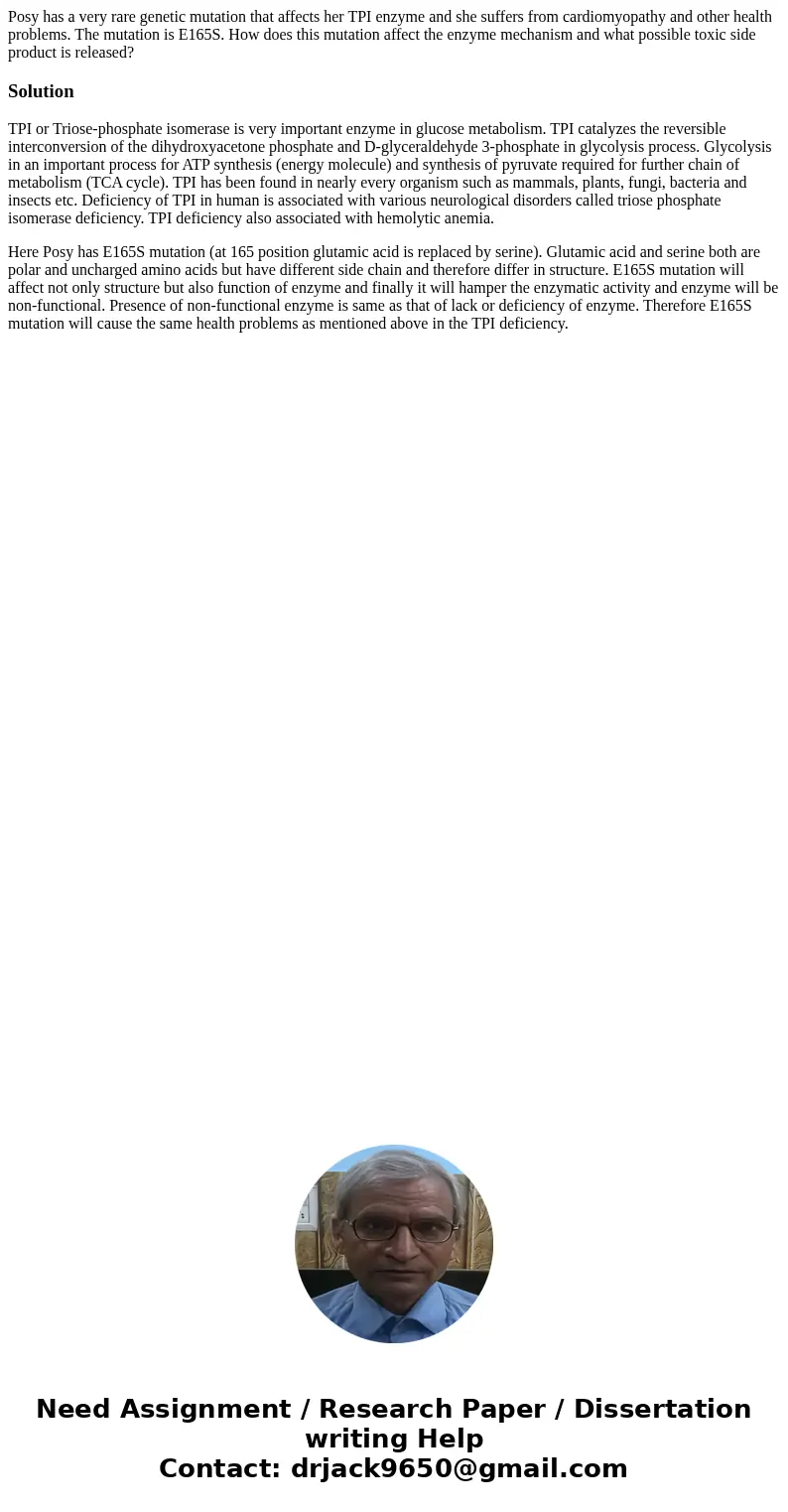Posy has a very rare genetic mutation that affects her TPI e
Posy has a very rare genetic mutation that affects her TPI enzyme and she suffers from cardiomyopathy and other health problems. The mutation is E165S. How does this mutation affect the enzyme mechanism and what possible toxic side product is released?
Solution
TPI or Triose-phosphate isomerase is very important enzyme in glucose metabolism. TPI catalyzes the reversible interconversion of the dihydroxyacetone phosphate and D-glyceraldehyde 3-phosphate in glycolysis process. Glycolysis in an important process for ATP synthesis (energy molecule) and synthesis of pyruvate required for further chain of metabolism (TCA cycle). TPI has been found in nearly every organism such as mammals, plants, fungi, bacteria and insects etc. Deficiency of TPI in human is associated with various neurological disorders called triose phosphate isomerase deficiency. TPI deficiency also associated with hemolytic anemia.
Here Posy has E165S mutation (at 165 position glutamic acid is replaced by serine). Glutamic acid and serine both are polar and uncharged amino acids but have different side chain and therefore differ in structure. E165S mutation will affect not only structure but also function of enzyme and finally it will hamper the enzymatic activity and enzyme will be non-functional. Presence of non-functional enzyme is same as that of lack or deficiency of enzyme. Therefore E165S mutation will cause the same health problems as mentioned above in the TPI deficiency.

 Homework Sourse
Homework Sourse